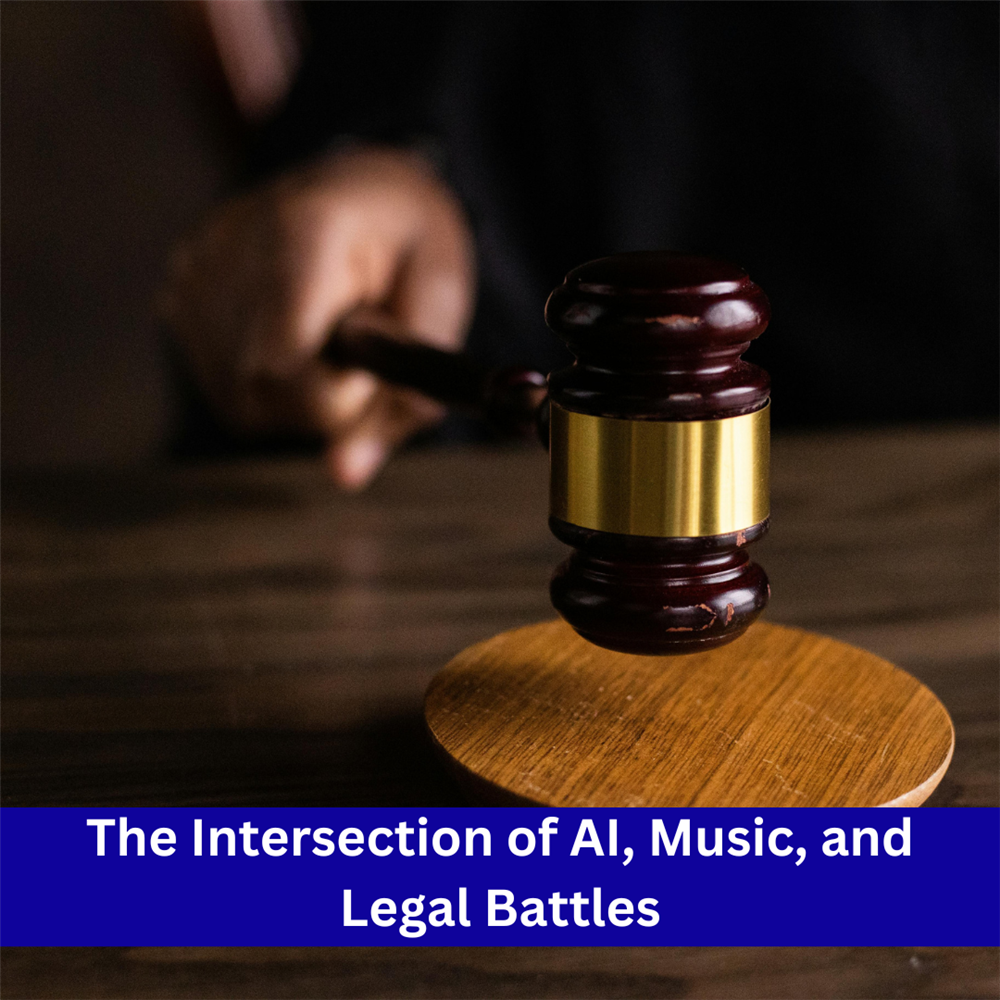The Intersection of AI, Music, and Legal Battles: Voicify Faces Legal Action from UK Music Industry
In a digital age where technology continuously pushes boundaries, the collision between AI and the music industry has brought forth a unique challenge: vocal cloning. Voicify, now rebranded as Jammable, stands at the center of controversy, offering over 3,000 deepfake models of various artists' voices for users to replicate without permission. This unauthorized use of AI-generated vocals has prompted...
Show All...
The Intersection of AI, Music, and Legal Battles: Voicify Faces Legal Action from UK Music Industry
In a digital age where technology continuously pushes boundaries, the collision between AI and the music industry has brought forth a unique challenge: vocal cloning. Voicify, now rebranded as Jammable, stands at the center of controversy, offering over 3,000 deepfake models of various artists' voices for users to replicate without permission. This unauthorized use of AI-generated vocals has prompted legal action from the UK's music industry.
Jammable's platform allows users to clone the voices of renowned artists like Adele, Justin Bieber, and Michael Jackson, among others, and use them to create their own musical deepfakes. These deepfakes, or "covers" as termed by Jammable, involve substituting the original vocal lines of songs with AI-generated vocals, effectively allowing users to create new tracks without obtaining licenses for the artists' vocals or the underlying musical compositions.
Both the RIAA in the USA and the UK's BPI expressed concerns over Jammable's practices. The RIAA emphasized copyright infringement and artists' rights violations, while BPI warned of legal action against Jammable's activities. The unauthorized replication of artists' voices not only violates copyright laws but also undermines the creative talent and hard work of musicians. This marks the first time BPI has taken legal action against a service enabling deepfakes of musical artists, signaling the gravity of the situation.
Despite the pressure from industry groups, Jammable persists in offering its services, albeit under a new name and with some alterations to its functionalities. However, the core issue remains unresolved, as the platform continues to provide users access to cloned voice models without proper authorization.
The financial success of Jammable's founder, Aditya Bansal, underscores the profitability of such ventures, raising concerns about the exploitation of artists' voices for commercial gain. Subscription plans ranging from modest to premium prices highlight the significant revenue potential of AI-driven vocal cloning services.
The BPI's efforts to combat Jammable's activities have garnered support from various music industry stakeholders, including the UK Musicians' Union, the Ivors Academy, and the Music Publishers Association. These organizations emphasize the importance of protecting the rights of creators and maintaining trust within the music community.
As legal battles unfold, experts highlight the broader implications of AI-generated content on intellectual property rights and privacy laws, as the unauthorized use of copyrighted materials in training AI models raises concerns about data privacy and the misappropriation of artists' brands. This proliferation of generative AI tools has spurred lawmakers into action, with the proposed No AI FRAUD Act in the US aiming to establish federal protections for individuals' rights of publicity in AI-generated content. Similarly, the European Union's AI Act seeks to regulate the development and use of AI, including requirements for obtaining authorization to use copyrighted materials.
Advocates argue that AI-generated music platforms like Voicify can offer significant benefits to both artists and audiences. For instance, the artist Grimes has embraced this technology by offering a 50/50 split on royalties for any AI-generated song that utilizes her voice. This move showcases a new revenue stream for artists while reducing their workload. Take for instance "GrimesAI" on Spotify, which exclusively uses Grimes' voice for its music. Despite being AI-generated, it has amassed 83,000 monthly listeners and over 3 million total streams. While some might argue that this diminishes the authenticity of the artistic process, proponents contend that it expands the reach of an artist's voice and brand, while still ensuring they receive compensation. Thus, AI-generated music platforms could serve as a means for artists to monetize their work efficiently and extend their influence to new audiences.
The music industry is at a crucial point, grappling with legal changes and the rise of AI in creative processes. It's vital to find a balance between innovation and ethics to protect artists' rights and ensure they're fairly compensated. Collaborative efforts are essential to establish clear rules and safeguards that uphold both artistic integrity and digital innovation, effectively managing the challenges posed by AI in creativity while ensuring legal accountability.
Show Less...